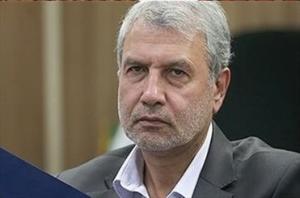December 12, 2014

Labor Minister Ali Rabii says the government is planning to send 100,000 job seekers abroad to get employment by next summer, an astounding policy change and new way to try to reduce joblessness inside Iran.
Rabii told reporters his ministry has pinpointed a number of countries where Iranian workers can be sent. But he did not name any, which raised questions as to just how serious this job effort was.
To send that many people abroad in just six months would require specific employers to be lined up by this time.
Commonly countries with large-scale unemployment sign agreements with countries that need to import labor. Historically, most of those countries have been in Europe. But with Europe’s economy lagging right now, and with workers in poorer EU member states free to go to richer EU states with job openings, the need for labor from outside the EU is not apparent.
Japan is facing a major labor shortage, but because of its closed social system it has not been willing thus far to sign any agreements bringing in large numbers of foreign workers.
Rabii noted that Iran itself has long resisted exporting labor in large numbers as a matter of government policy. The regime, he noted, did not see that as having positive connotations. Putting a positive spin on the policy shift, Rabii argued, “Studies show that we do not currently have a proper share of international labor markets,” as if there were some international standard for the export of labor that Iran needs to meet.
He said the failure to send more workers abroad was largely rooted in issues like sanctions and Iranophobia, although Iran did not export much labor even when sanctions were non-existent and no one had heard of Iranophobia.
The Labor Ministry has had a very limited effort to place workers abroad in the past. Rabii said about 5,000 workers were sent abroad on government programs this year. This program includes many doctors sent to work in developing countries.
Rabii said the nursing, construction, oil and gas, petrochemical and engineering sectors were all ready to send people abroad.
Rabii may be feeling desperate for new ways to cope with high unemployment. Several weeks ago, he warned that unemployment would soon soar in Iran.
Going contrary to the usual official claims, Rabii said unemployment would surge in the next seven years as far more school-leavers join the workforce than jobs can be created for them.
Unemployment is now officially at 10.2 percent. Seven years from now, in 2021, the labor force is expected to total a whopping 42.5 million people, Rabii said, with probably 7.5 million of them, or 17.6 percent, unemployed.
















